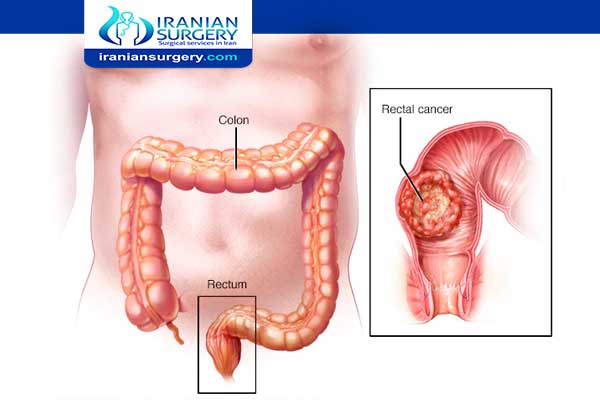Early symptoms of colon cancer in females

Early Symptoms of Colon Cancer
Symptoms of Colon Cancer
Colon cancer often causes no symptoms in the earliest stages. However, symptoms may become more noticeable as it progresses.
These signs and symptoms may include:
. Diarrhea or constipation
. Changes in stool consistency
. Loose, narrow stools
. Blood in the stool, which may or may not be visible
. Abdominal pain, cramping, bloating, or gas
. Continual urges to defecate despite passing stools
. Weakness and fatigue
. Unexplained weight loss
. Irritable bowel syndrome
. Iron deficiency anemia
If the cancer spreads to a new location in the body, such as the liver, it can cause additional symptoms in the new area.
 Read more about : Cervical cancer treatment
Read more about : Cervical cancer treatment
Read more about : Risk factors of cervical cancer
Read more about : Early symptoms of Cervical cancer
When to see a doctor
If you notice any persistent symptoms that worry you, make an appointment with your doctor.
Talk with your doctor about when to begin colon cancer screening. Guidelines generally recommend that colon cancer screenings begin around 50. Your doctor may recommend more frequent or earlier screening if you have other risk factors, such as a family history of the disease.
About Iranian Surgery
Iranian surgery is an online medical tourism platform where you can find the best Surgeons to treat your colon cancer in Iran. The price of treating a colon cancer in Iran can vary according to each individual’s case and will be determined by the type of treatment you have and an in-person assessment with the doctor. So if you are looking for the cost of colon cancer treatment in Iran, you can contact us and get free consultation from Iranian surgery.

Diagnosis
Screening for colon cancer
Doctors recommend certain screening tests for healthy people with no signs or symptoms in order to look for signs of colon cancer or noncancerous colon polyps. Finding colon cancer at its earliest stage provides the greatest chance for a cure. Screening has been shown to reduce your risk of dying of colon cancer.
Doctors generally recommend that people with an average risk of colon cancer begin screening around age 50. But people with an increased risk, such as those with a family history of colon cancer or African-American heritage, should consider screening sooner.
Several screening options exist — each with its own benefits and drawbacks. Talk about your options with your doctor, and together you can decide which tests are appropriate for you. If a colonoscopy is used for screening, polyps can be removed during the procedure before they turn into cancer.
Read more about: Ovarian cyst size chart
Read more about: Ovarian Cancer Treatment
Read more about : How to burst a bartholin cyst at home?
Diagnosing colon cancer
If your signs and symptoms indicate that you could have colon cancer, your doctor may recommend one or more tests and procedures, including:
. Using a scope to examine the inside of your colon (colonoscopy). Colonoscopy uses a long, flexible and slender tube attached to a video camera and monitor to view your entire colon and rectum. If any suspicious areas are found, your doctor can pass surgical tools through the tube to take tissue samples (biopsies) for analysis and remove polyps.
. Blood tests. No blood test can tell you if you have colon cancer. But your doctor may test your blood for clues about your overall health, such as kidney and liver function tests.
Your doctor may also test your blood for a chemical sometimes produced by colon cancers (carcinoembryonic antigen, or CEA). Tracked over time, the level of CEA in your blood may help your doctor understand your prognosis and whether your cancer is responding to treatment.
Determining the extent of the cancer
If you've been diagnosed with colon cancer, your doctor may recommend tests to determine the extent (stage) of your cancer. Staging helps determine what treatments are most appropriate for you.
Staging tests may include imaging procedures such as abdominal, pelvic and chest CT scans. In many cases, the stage of your cancer may not be fully determined until after colon cancer surgery.
The stages of colon cancer are indicated by Roman numerals that range from 0 to IV, with the lowest stages indicating cancer that is limited to the lining of the inside of the colon. By stage IV, the cancer is considered advanced and has spread (metastasized) to other areas of the body.
Read more about : Clitoromegaly surgery pictures
Read more about : Colorectal cancer surgery
Read more about : Anal Cancer Treatment
Read more about : Bone cancer stage
Read more about: Radiation Therapy Procedure
Read more about: Chemotherapy Procedure
Read more about: Ovarian Cyst Removal Surgery
Read more about: Bartholin Cyst Surgery
Read more about: Vaginoplasty Surgery

